In the last three wars, Mithqal’s house was destroyed by Israeli airstrikes. Last week it happened again
As many as 8,000 people are now permanently homeless in Gaza because of the bombing. For many, like Mithqal, it's not the first time. Bel Trew reports from Gaza

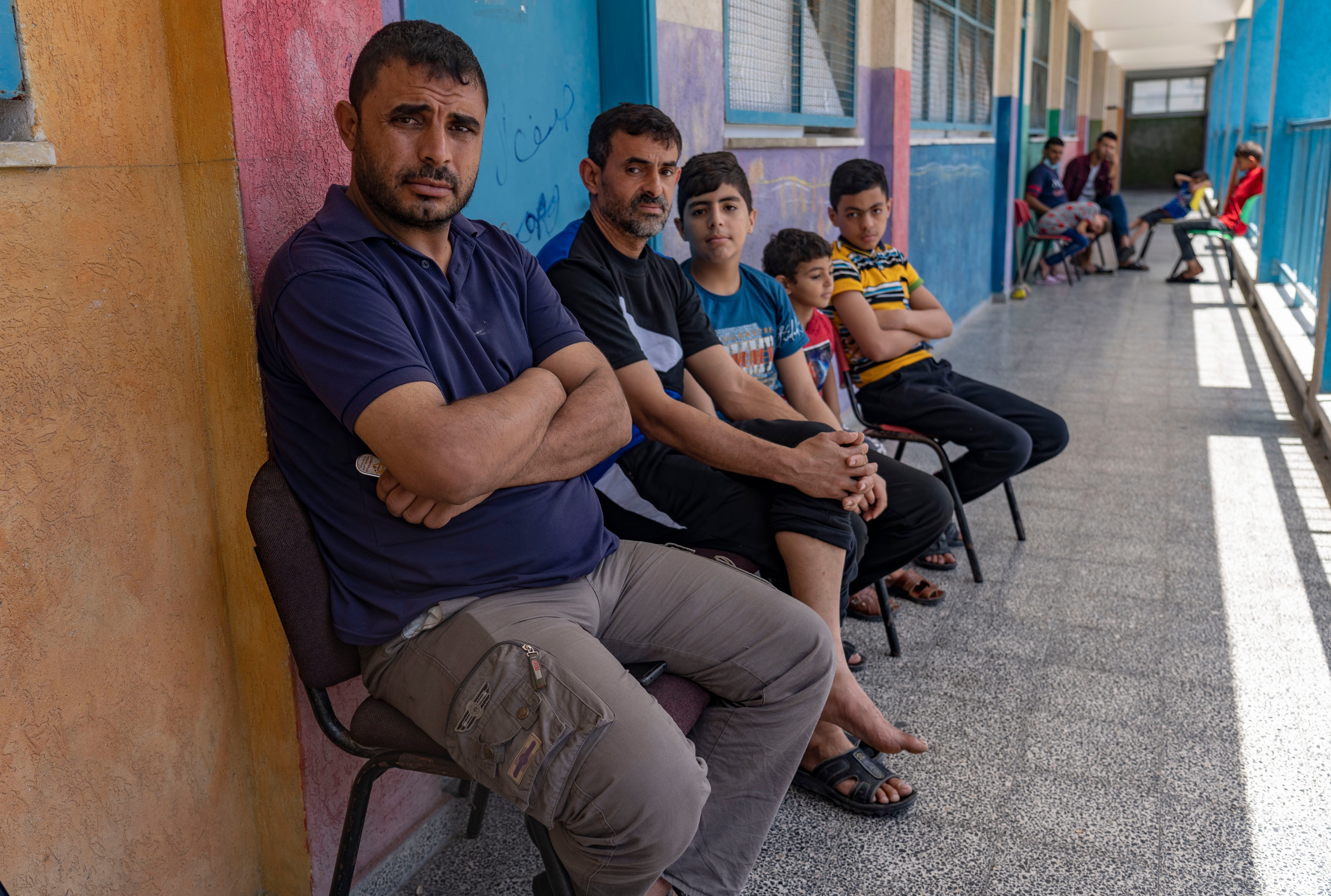
The only thing this Palestinian father has left of his house in Gaza is his key.
Perched awkwardly on a child’s chair in the classroom where he and his family are now living, Mithqal al-Sirsawy, 40, explains that last week his home was levelled for the fourth time.
Being close to the border fence with Israel, his house was destroyed by Israeli airstrikes during the wars of 2008, 2012, 2014, and most recently last week.
Every time this happens, his family flees to schools run by the UN’s Palestinian refugee agency (UNRWA) that during times of war are turned into makeshift shelters.
This week, in a boys’ school in al-Shati refugee camp near Gaza's beachfront, they have now fashioned a bedroom out of upturned school desks and blankets, like a child’s play fort.
“Because my house was bombed so many times I know UNRWA so well I’ve learned their phone numbers off by heart,” jokes Mr al-Sirsawy, with a flick of despair in his laugh. “Now I’m homeless again, and there is no one to help me with food or water. It’s humiliating. What is the point?”
He says that since 2008, the repeated rebuilding of his house has cost him approximately $100,000 (£72,000), and although he received some international aid, it is a huge amount for a father-of-two who earns around $7,000 (£5,000) a year from his job grinding and selling spices.
“After the 2012 war, I rebuilt my house, but was only able to enjoy it for 6 months before it was knocked down again. It took me three years to rebuild my home after the 2014 war. And now, in 2021, what do I do?”
According to the United Nations, more than 72,000 people were displaced in Gaza because of the Israeli bombardment after ferocious fighting erupted on 10 May between militants in Gaza and the Israeli army.
While many have been able to go home since the ceasefire, UN officials told The Independent that as many as 8,000 people, like Mithqal, have been left permanently homeless because their homes have been destroyed.
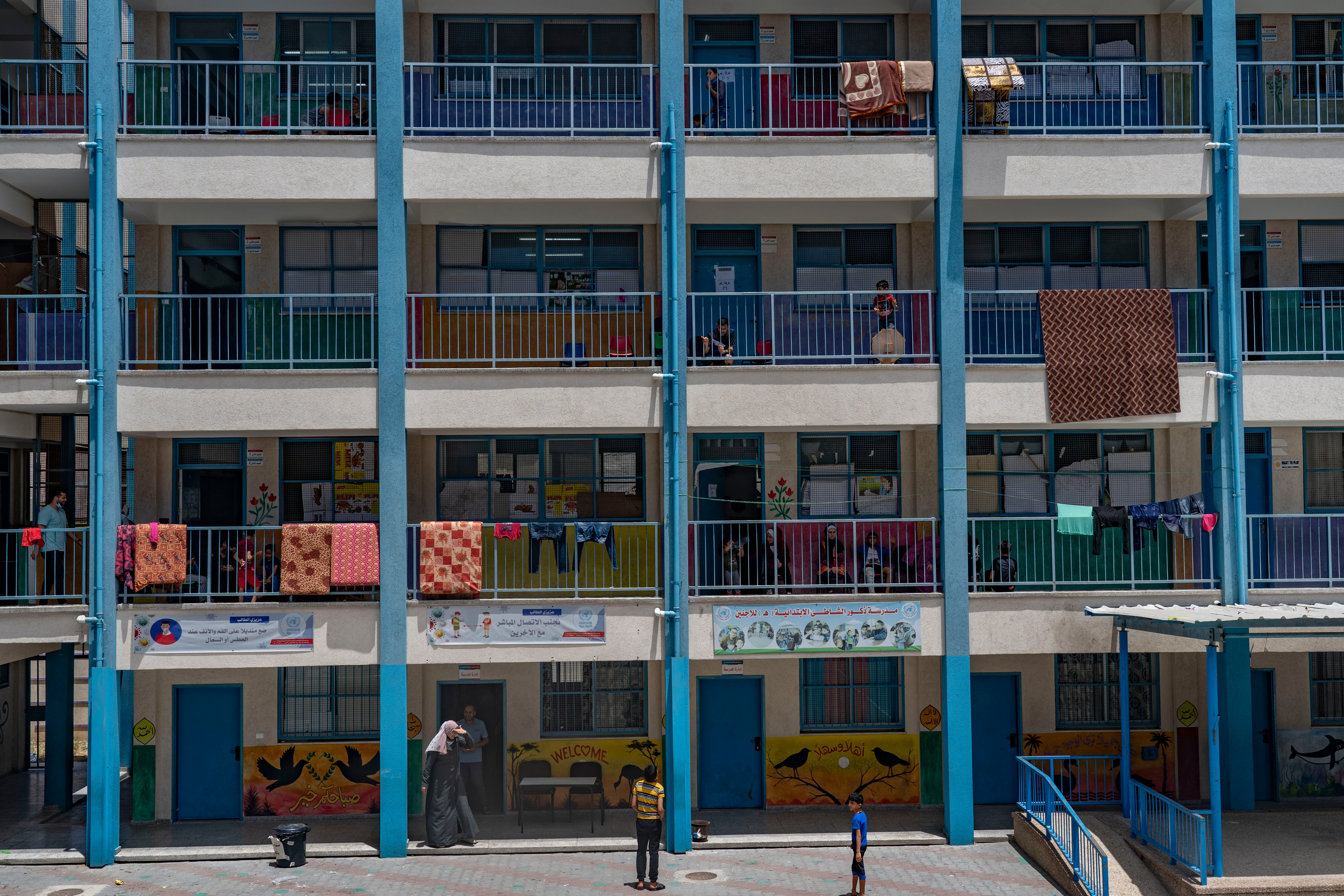
The poorest are reduced to camping in UNRWA classrooms until they can secure financial assistance to rent flats before they eventually rebuild their houses. But that process can take years.
Gaza has been strangled by a crippling 13-year long Egyptian-Israeli blockade, which has been in place since the Hamas militant group violently seized the strip, and makes bringing in supplies such as building materials difficult.
Tamara al-Rifae, a spokesperson for UNRWA, tells The Independent that the UN agency is still trying to assist families who were displaced during the 2014 war and are living in temporary shelter.
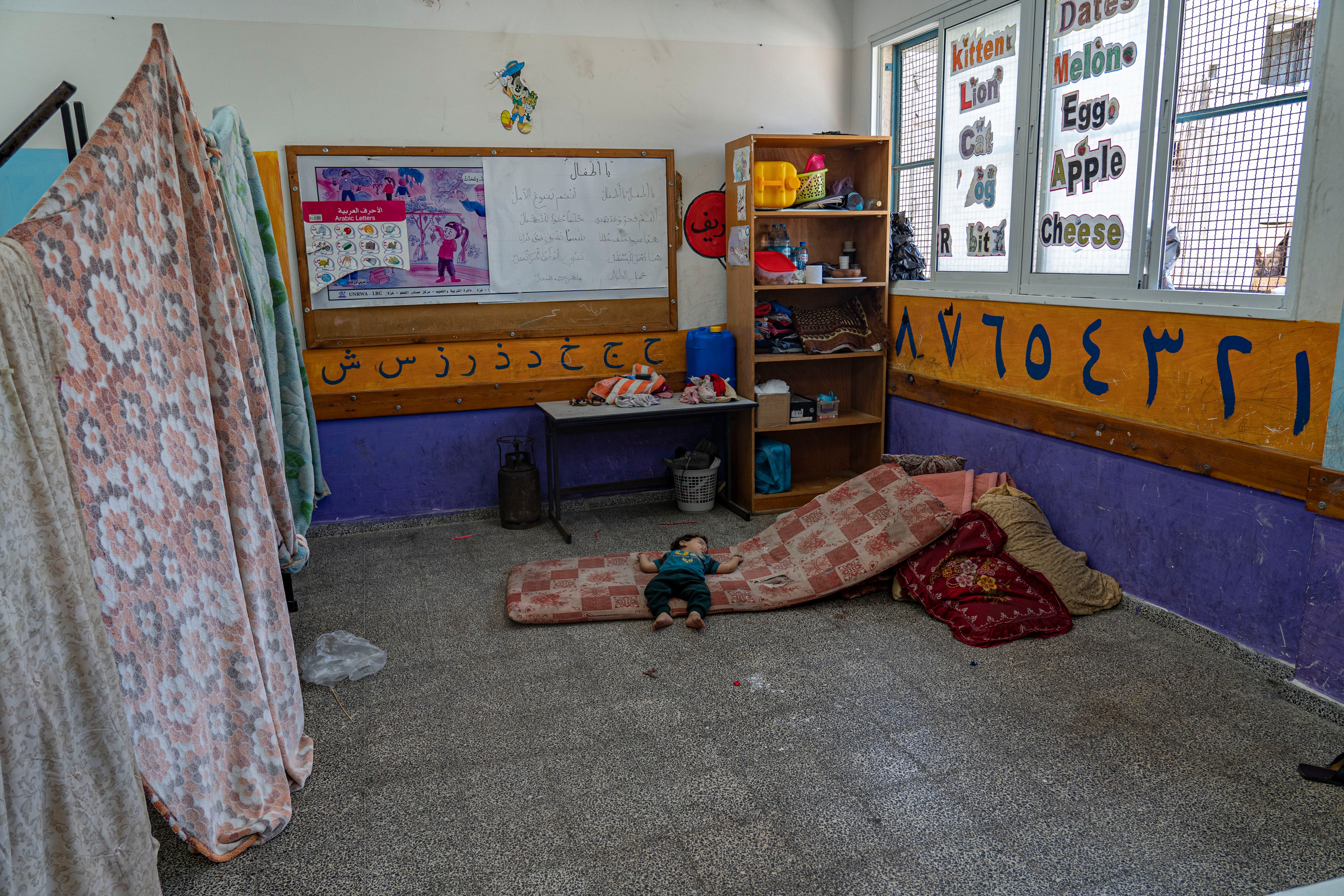
Now, seven years on, thousands more who have been made homeless will join them.
“That’s why UNRWA is seeking emergency cash assistance for people whose homes are destroyed or badly damaged, to help them rent until they can fix their homes,” Ms al-Rifae tells The Independent, referring to a multimillion-dollar appeal the agency has launched.
“Given the shattered economy and soaring unemployment rates, the chances of Palestinian refugees, who are largely very poor, to rebuild are slim,” she adds.
As the fighting erupted, Israel unleashed hundreds of airstrikes against targets in Gaza, while Hamas and other militants fired more than 4,000 rockets towards Israel.
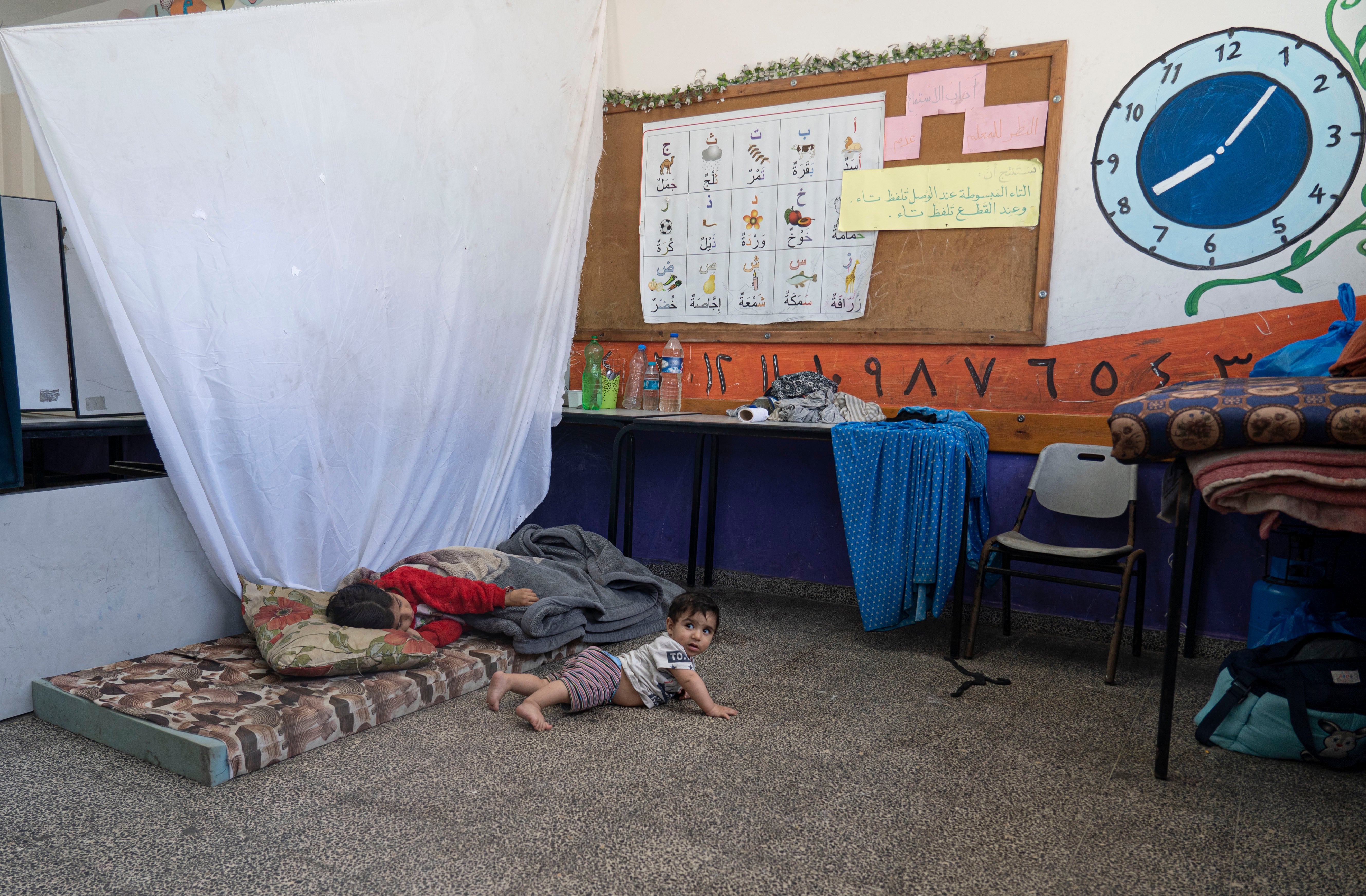
The Gaza health ministry says 248 Palestinians were killed, including 66 children and 39 women. In Israel, 12 people were killed, including two children and a soldier.
Despite an Egypt-brokered ceasefire currently in place, tensions remain high in central Gaza. At the weekend, masked Hamas fighters brandishing assault rifles paraded through the main city, and the group's top leader Yahya Sinwar made his first public appearance.
The show of force came as Egyptian mediators held talks to firm up the truce and hammer out the tricky details.
Many of those displaced fear that despite their efforts, fighting might erupt again.
This is keenly felt at the boys’ school where Mithqal is living alongside some 200 others, who live one family per classroom. There, babies crawl over blankets strewn across the floor while children, in grubby clothes, play with the blackboards and teaching materials.
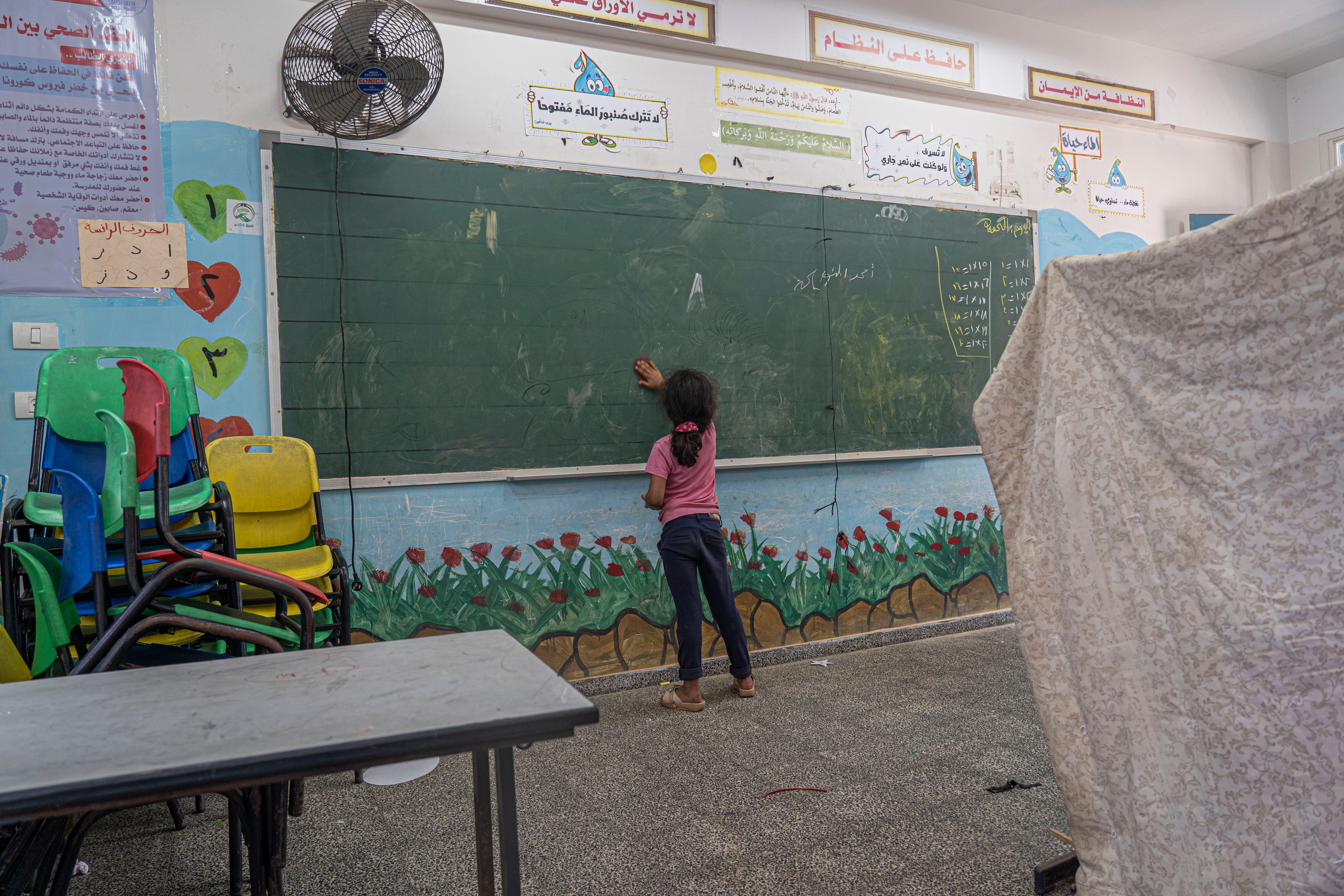
Parents have fashioned makeshift kitchens by sectioning off corners with blankets. They try to cook food with kettles. But sleeping on the floor underneath school desks is not a long-term solution, and every family in the school begs for financial help with rent until they can find a permanent home.
“I lost my farm in 2012, and then my home in 2014, and again last week to airstrikes,” says Harb Sukkar, 30, with the eldest of his four children perched on his knee.
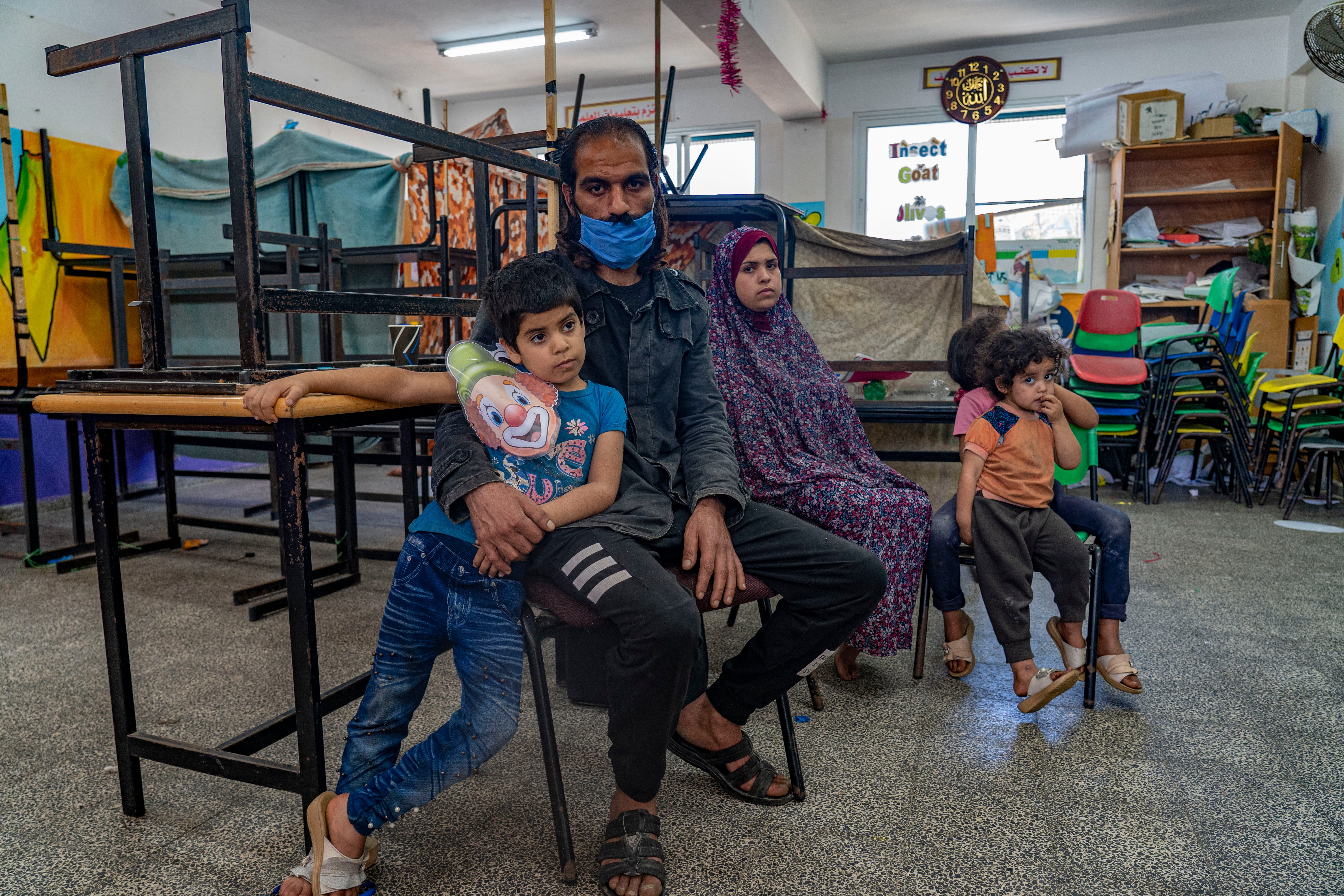
The carpenter, who lives near Shuja'iyya in eastern Gaza, pulled his four children out of an inferno when his house took what he says was a direct hit in the early days of the bombardment.
They fled to central Gaza, which they thought would be safer, camping in a partially constructed building on Wehda Street, the main thoroughfare in Gaza City and a heavily populated civilian area.
On 16 May airstrikes hit that street, killing dozens including many children, and sent the family running for the UNRWA school.
“I have no idea what to do with my life. I am homeless, traumatised and I don’t know where to take my children,” Sukkar says, with a slight tremble in his voice.
“I keep asking myself what fault did my children commit to deserve this?”
Join our commenting forum
Join thought-provoking conversations, follow other Independent readers and see their replies
Comments
Bookmark popover
Removed from bookmarks